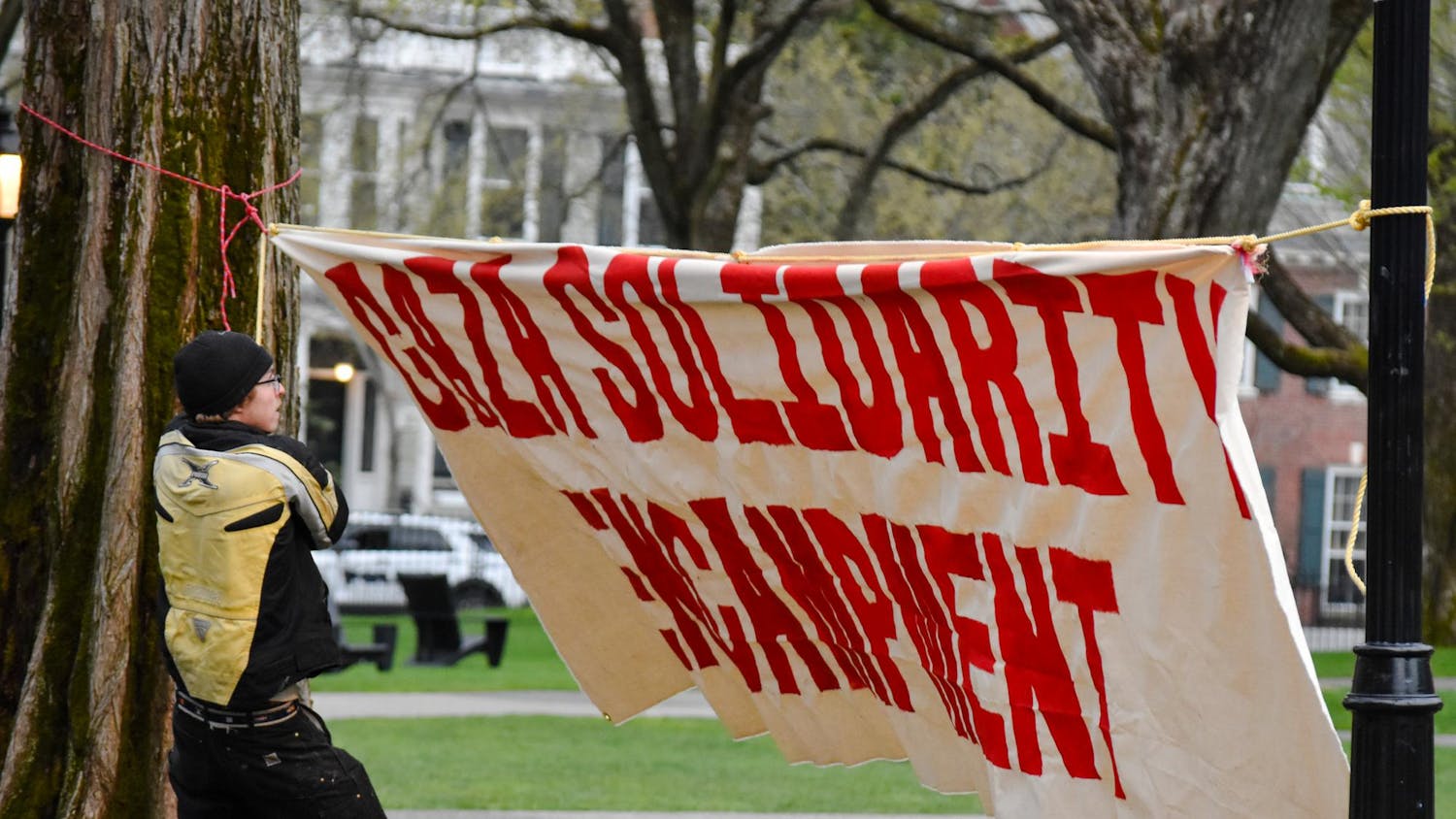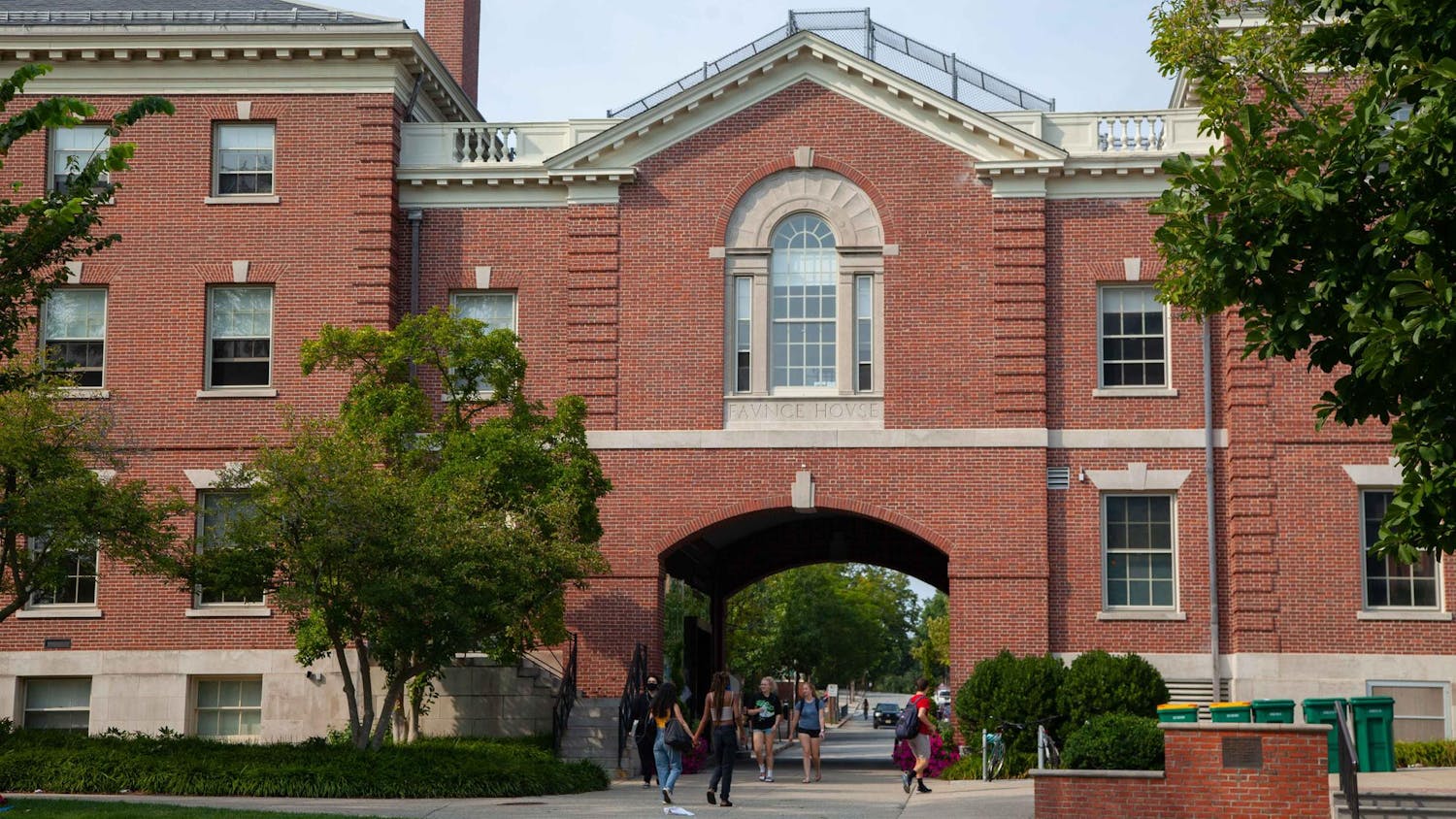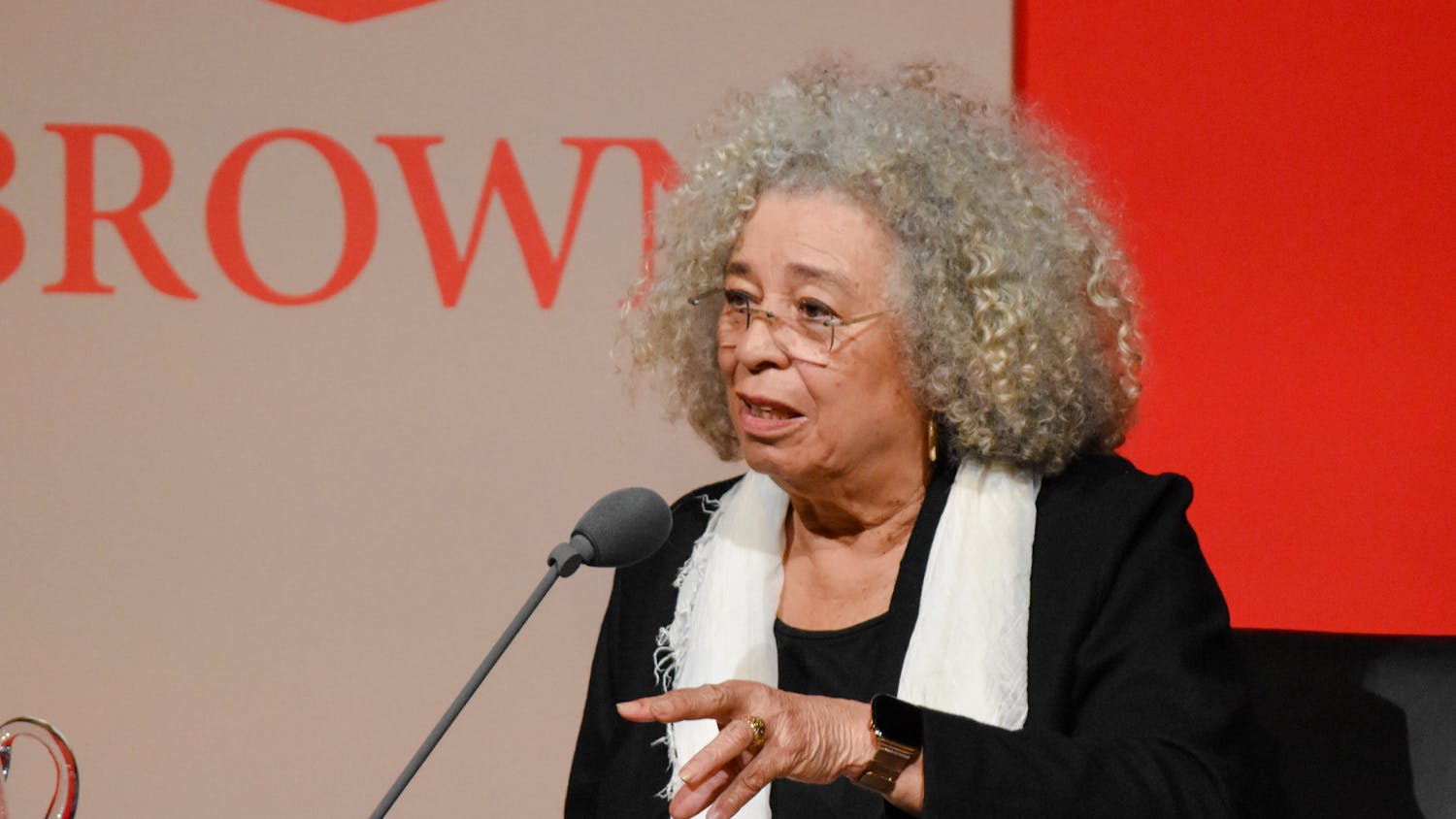African music percolated with excited chatter as a crowd waited to hear Professor of Africana Studies Chinua Achebe kick off the Department of Africana Studies 2011-12 Conversations in Africana Writing Series Monday. Achebe and other authors were featured in a panel titled "Voice and Memory in the Poetic Imagination" at the George Houston Bass Performing Arts Space, which was filled to capacity with academics, students, writers and community members.
Along with Achebe, Brenda Marie Osbey, visiting professor of Africana studies, and poet Gabriel Okara spoke about the importance of Africana culture during a time when traditional African values are being forgotten amid cultural diffusion. Okara received the 1979 Commonwealth Poetry Prize. He flew to Providence from his native Nigeria for the event.
The event made history, as it was the first time Achebe, best known for his novel, "Things Fall Apart," and Okara have spoken together in a discussion panel, said Corey Walker, associate professor and chair of the Africana studies department.
The poetry of both Achebe and Okara depicts Africa, while Osbey's focuses on the African experience in colonial America.
Many of the poems had humanitarian implications. One of the poems Achebe read, "Refugee Mother and Child," was inspired by a haunting vision he had of a refugee camp. Okara's "Waiting for A Son" is about a mother who continues to wait after 20 years for a son who will never return from the Nigerian Civil War.
Osbey, a Louisiana native, tackled the more contemporary subject of Hurricane Katrina in her poem "Litany of Our Lady," which is reminiscent of a traditional Catholic prayer but addresses contemporary black struggles. Osbey was the poet laureate of Louisiana in 2005 and won the American Book Award in 1998.
There were some lighter moments during the evening, such as when Achebe related a story about Queen Elizabeth II of England requesting his permission to quote from "Beware Soul Brother," one of his poems, in a speech to the leaders of the Commonwealth. The audience laughed when Achebe said it "gave him an opportunity to name drop" and then he promised to quit telling the story.
Though Achebe was the most well-known of the speakers, the three poets shared time equally.
"I write poems as a way of observing and understanding the world around me," said Osbey. "We're bearing the burden of our experience, and putting my poetry out there shares the burden."




